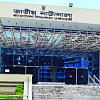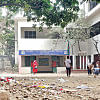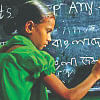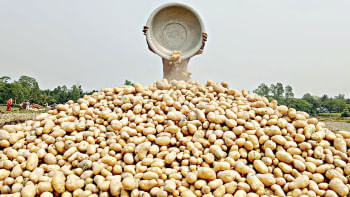Decent jobs, quality education should get top priority in budget

Bangladeshis want the upcoming budget for fiscal year 2024-25 to increase allocations prioritising the availability of decent jobs, ensuring a better quality of education and enhancing social protection, reveals a new study of the Centre for Policy Dialogue (CPD).
About 22 percent of the respondents placed top priority on decent jobs, 17.5 percent on quality education and 12 percent on social protection, said the associated report.
The think-tank unveiled the findings at an event, titled "New Government, National Budget and Citizens' Aspirations", at the capital's Lakeshore Hotel yesterday.
The study was based on 2,249 responses through Google forms and over 8,000 responses and comments from social media of all segments of society, including indigenous and physically challenged people, senior citizens, children and people in chars and haors.
It highlighted around 14 sectors such as inclusive society, health, skill development, governance, agriculture, commodity prices and women empowerment.
Among those who prioritised decent jobs, 44 percent want reduced unemployment, 36 percent increased job opportunities, 11 percent an allowance for unemployed and 8 percent increased youth employment.
In case of quality education, almost half sought enhancement of the quality of education while 25 percent want student stipends.
"This is the wisdom of the people which is reflected in this survey," said Debapriya Bhattacharya, convener of the Citizen's Platform for SDGs, Bangladesh.
People have now become more conscious and prioritise their needs clearly, he said.
"From their own situation, the communities which have been left behind have set their priority for the upcoming budget. But employment, education and social protection were common priorities," Bhattacharya said.
However, the communities suggested decentralising both budget preparation and implementation, ensuring regular monitoring involving the civil society and engaging local communities in the budget formulation process.
The government should invest in midday meals for children and subsidised food for workers, taking it as an investment instead of only spending, said Prof Mustafizur Rahman, a distinguished fellow of the CPD.
"It has a long-term positive impact and return," he added.
The country has already entered a second phase of the existing challenges.
People now expect quality education rather than only education and long-term social security instead of disbursements of small funds under social safety nets, he said.
"Lack of nutrition is one of the reasons that the country is falling behind in the education sector," said Rasheda K Choudhury, executive director of the Campaign for Popular Education.
She emphasised increasing coverage of midday school meals through reducing wastage and corruption in government spending.
Rural people want uninterrupted electricity, bridges, drinking water, sanitary latrines and social safety, said former planning minister MA Mannan.
Cost cutting measures are necessary and there are huge scopes for reducing the wastage prevailing in almost all sectors, said Mannan, also chairman of the standing committee on the Ministry of Planning.
The government was compelled to downsize the budget last year while some ministries were unable to utilise allocations, said Anisul Islam Mahmud, deputy leader of the opposition in parliament and a Jatiya Party lawmaker.
"The current budget is also going to see the same fate," he added.
"Why has the economy started to degrade suddenly? Export and remittance are growing. Even a huge import reduction could not help preserve foreign exchange reserves," Mahmud, also a former environment and forest minister.

 For all latest news, follow The Daily Star's Google News channel.
For all latest news, follow The Daily Star's Google News channel. 









Comments